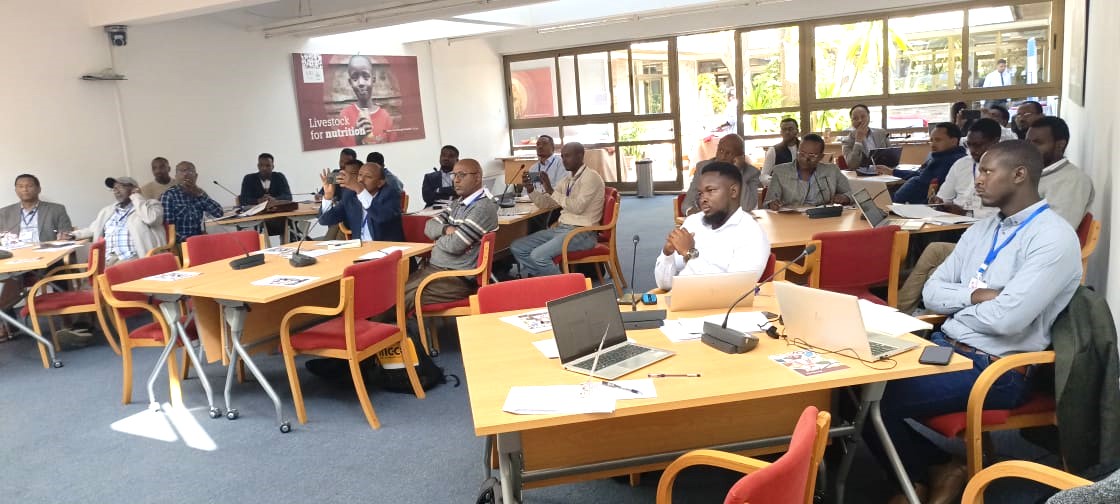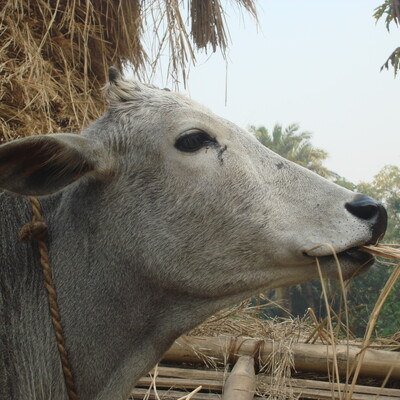
Exploring integration of KAZNET into Ethiopia’s national and regional resilience programming and information systems
Posted on
KAZNET has been operational in Ethiopia since 2021, specifically in Borena, Afder, and East Hararghe regions. In Kenya, KAZNET has already been integrated into the country’s agricultural observatory platform (KAOP) and is enhancing the delivery of real-time livestock market data to over 2 million registered farmers.
A national multistakeholder workshop was recently organised in Ethiopia to explore KAZNET’s potential integration into Ethiopia’s national and regional initiatives. The expansion and integration of KAZNET into Ethiopia’s national resilience programming and information systems run by the government, represents a significant opportunity to enhance climate risk management, improve market efficiency, and strengthen resilience in pastoral and agro-pastoral communities.
“By leveraging KAZNET’s citizen science, real-time data and crowdsourcing capabilities, Ethiopia can transform and build a more resilient and adaptive food system that can reduce impact posed by climate change and other production shocks for the benefit of its people,” explains Dr. Yohannes Girma from the Ministry of Agriculture.

KAZNET: A platform for real-time data collection and dissemination
KAZNET leverages citizen science principles to collect real-time data on market performance, rangeland conditions, and household food security from sentinel sites monitored weekly. This data is summarized in user-friendly dashboards and disseminated to agro-pastoralists to support decision-making at both household and institutional levels.
KAZNET in Ethiopia
In January 2025, a team from the International Livestock Research Institute (ILRI) and Supporting Pastoralism and Agriculture in Recurrent and Protracted Crises (SPARC) organized a multi-stakeholder workshop in Addis Ababa, Ethiopia. The workshop aimed to share experiences from the implementation of KAZNET in Kenya and Ethiopia and explore its potential integration into national and regional initiatives to address climate risks and transform food systems in Ethiopia.
Funded by the Foreign, Commonwealth and Development Office of the United Kingdom, this initiative is part of the Drought Index-insurance for Resilience in the Sahel and Horn of Africa (DIRISHA) project, which seeks to enhance resilience in pastoral and agro-pastoral communities through innovative data-driven solutions.
The multi-stakeholder workshop in Ethiopia shared learnings from KAZNET implementation in Ethiopian regions of Borena, Afder and East Hararghe zones, where it relies on 80 citizen volunteers to support the system by monitoring 160 transect sites, 19 major livestock markets, and 320 households. The workshop explored opportunities for incorporating the platform into national and regional initiatives including into the country’s climate risk management and food system transformation efforts. The workshop brought together stakeholders from various sectors, including government ministries, private sector actors, development agencies, research institutions, and pastoralist associations.
Integrating KAZNET into Ethiopia’s national and regional initiatives
The workshop generated several recommendations for embedding KAZNET into Ethiopia’s national livestock strategic plan and fostering multi-sectoral collaborations. These include strengthening partnerships with government agencies, developing cross-border data-sharing frameworks, enhancing collaboration with private sector actors, piloting KAZNET integration into Ethiopia’s early warning systems, and scaling up gender-sensitive initiatives.
One of the key discussions at the workshop focused on integrating KAZNET with the Ethiopian Meteorological Institute (EMI) and the IGAD Climate Prediction and Applications Centre (ICPAC). By combining KAZNET’s real-time, crowdsourced data with EMI’s meteorological forecasts and ICPAC’s regional climate models, stakeholders can create a more comprehensive and responsive information ecosystem. This integration can enhance early warning systems, improve climate predictions, and support decision-making in Ethiopia’s arid and semi-arid regions.
Private sector collaboration and market linkages
The workshop also explored how KAZNET’s approach could feed into private sector initiatives, such as Lersha, a digital platform providing agro-advisory services to farmers and pastoralists. The workshop noted that KAZNET’s high-frequency data on markets, rangeland conditions, and livestock prices can enhance the accuracy and relevance of Lersha’s offerings. By integrating KAZNET’s data into Lersha’s mobile applications, pastoralists can access region-specific recommendations for grazing, market opportunities, and climate adaptation. This collaboration can strengthen market linkages, improve transparency, and help pastoralists negotiate better prices for their livestock.
Addressing cross-border conflicts and food security
Ethiopia’s pastoral regions frequently experience resource-based conflicts due to competition for grazing grounds and water sources. KAZNET’s real-time data on rangeland conditions and livestock movements can help predict potential conflict hotspots and support peace-building efforts. Additionally, integrating KAZNET’s rangeland data, with GIS-based food security monitoring systems, can improve the targeting of humanitarian aid and nutritional interventions. By linking pasture availability data with household nutrition surveys, decision-makers can correlate environmental factors with malnutrition trends and respond more effectively to food crises.
Refining Index-Based Livestock Insurance (IBLI)
KAZNET’s real-time ground-truthing capabilities can also refine index-based livestock insurance (IBLI) products. By providing accurate, localized data on pasture conditions and drought severity, KAZNET can improve the calibration of IBLI models, ensuring fairer and more timely payouts for insured pastoralists. This transparency can increase pastoralist trust in IBLI, reduce disputes, and enhance adoption rates.
Conclusion: The promise of KAZNET in Ethiopia
Ethiopia’s agri-food systems are increasingly threatened by extreme weather events and other production shocks, making it difficult for current systems to anticipate, absorb, and adjust to climate-related challenges. The Ethiopian government has prioritized climate risk management, vulnerability reduction, and resilience building, particularly in agro-pastoral settings. To effectively manage climate risks, dynamic monitoring of shocks is essential. Citizen science and crowdsourcing initiatives like KAZNET have emerged as innovative approaches to address information gaps.
You may also like
ILRI News
ILRI presents results of Livestock Sector Analysis and Strategy for Nigeria: Major step towards a national livestock master plan

ILRI News
Veterinary conference challenges experts to adopt new approaches to livestock development in India
Related Publications

Context Matters: Tackling Methane in Livestock Systems for a Sustainable Future
- Food Systems for the Future (FSF)
- Environmental Defense Fund
- International Livestock Research Institute

Livestock farmer groups for innovation uptake, market access and policy influence in Mai Son District, Son La Province, Vietnam
- Thinh, Nguyen Thi
- Thanh, Lo Quang
- Le, Pham Thi
- Marshall, Karen
- Atieno, Mary
- Burkart, Stefan

One Health scientific conference: International practices and lessons learned for Vietnam
- Vietnam One Health Partnership
- International Livestock Research Institute

Policy levers to unlock climate finance in the livestock sector: A guide for national policymakers to integrate livestock in climate strategies
- Alemayehu, Sintayehu
- Cramer, Laura K.
- Gonzalez Quintero, Ricardo
- Kimoro, Bernard
- Kohler, Gregory

Proceedings of the First Technical Advisory Steering Committee Meeting for ‘Strengthening Adaptive Capacity of Extensive Livestock Systems for Food and Nutrition Security and Low-emissions Development in Eastern and Southern Africa’ Project in Ethiopia
- Mekuriaw, Shigdaf
- Dijk, Suzanne van
- Makonnen, Brook T.










